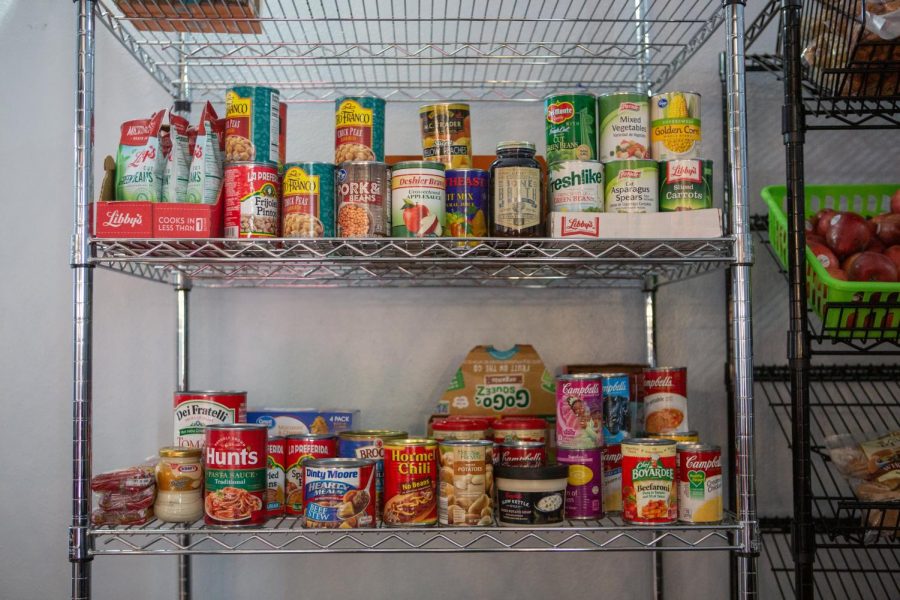Students experience food insecurity on campus
Canned food sits on a shelf at the Wesley Food Pantry on Feb. 21, 2020. Many University students are faced with food insecurity.
September 12, 2021
Research suggests that approximately 2,000 University students experience some form of food insecurity annually, according to Dr. Alana Harris, associate director of Assessment, Wellness and Adventure Recreation at Campus Recreation.
One of the on-campus resources is the Food Assistance & Well-Being Program at Campus Recreation, a food pantry designated for University students that started in August 2020.
For the 2020-2021 academic year, the program had 815 total visits with 244 of those being unique individuals, Harris said via email.
“We want Illinois students to thrive, and we know if they are hungry they can’t focus on being students,” Dr. Harris said via email. “Sometimes coming to our program is an opportunity to point them in the direction of other important resources. Food insecurity is not something that typically happens in isolation from other hardships.”
Another on-campus resource is Bevier Café as part of the Everybody Eats program, a pay-what-you-can restaurant in which customers can either pay for what one can, pay the menu price, pay more than the menu price or pay for someone else’s meal.
Get The Daily Illini in your inbox!
According to Carter Phillips, Quantity Food Manager at Bevier Hall, the program emerged from the pandemic, following conversations with students about campus food insecurity.
“A student of mine … shared an experience that during his freshman year he could remember walking around campus dizzy, because he hadn’t eaten in so long,” Carter Phillips said. “At that point, it was like I can’t let this happen on my watch, and we need to do whatever we can to help fight food insecurity on campus.”
Bevier Cafe differentiates itself from other food resources, as it is a student-staffed restaurant that prepares fresh meals to order, serving between 150 and 200 guests per shift.
“At most soup kitchens that feed people who are food insecure, there is one choice for that meal,” Phillips said. “It doesn’t preserve the dignity, or give that person the same experience that they would have at a restaurant. So what we’re trying to do here is kind of reclaim that dignity. They get to order what they want off the menu, so whatever looks good to them is what they can order.”
The University has a website that provides a list of off-campus and on campus resources available to students.
Although finding the resources adequate and accessible, Sarah Tate, sophomore in ACES, believes that the University could do more to promote its resources.
“Given that the university has provided a compiled list of resources to help curb food insecurity… is a great start,” Tate said. “I just think that there needs to be more of an initiative to encourage people to seek out those resources … it’s good that we have resources, but I fail to see a promotion of those efforts.”
In addition, food insecurity on campus can often be an overlooked and hidden issue.
“I feel like a lot of us, we take … the access to food for granted, and we don’t pay attention to food insecurity and problems in our community until it hits us,” Tate said. “We have grocery stores here, we have restaurants with multiple food options, but you can still live in a community where there are multiple food options and be food insecure.”







